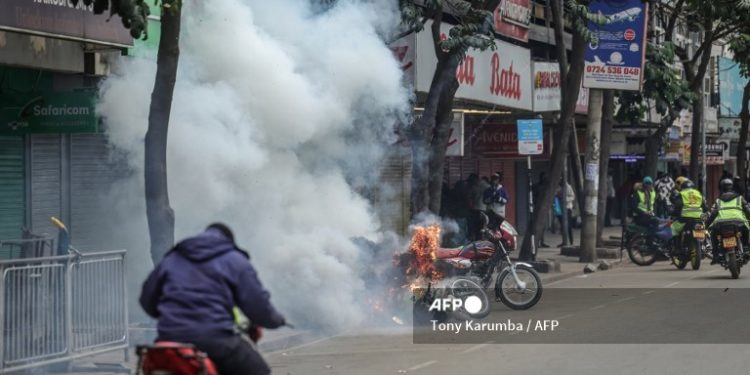Kenyan security forces deployed teargas and live ammunition against demonstrators in Nairobi on Tuesday, as scattered protests calling for President William Ruto’s resignation erupted across the east African nation.
By midday, law enforcement had escalated their response in the capital and Nakuru, a city northwest of Nairobi, using live rounds and batons to disperse crowds. Several journalists covering the protests were injured by bullets.

The demonstrations, which have been ongoing for a month, were initially sparked by unpopular tax increases proposed by the Ruto administration. However, they have since evolved into a broader movement demanding the president’s removal from office.
Tuesday’s protests, organised under the social media hashtag “RutoMustGo”, represent a continuation of civil unrest that has plagued Kenya since late June. Those earlier demonstrations resulted in dozens of fatalities and the storming of parliament, prompting President Ruto to withdraw the contentious finance bill.
The Kenya National Commission on Human Rights, a state-backed entity, reported that 50 people have died and 413 have been injured since the protests began on June 18. The police have faced accusations of employing disproportionate force against demonstrators.
In Nairobi’s central business district, the epicentre of previous demonstrations, authorities maintained a heavy presence. Simultaneously, protests unfolded in opposition strongholds such as Kisumu and Mombasa, as well as in Eldoret, considered a bastion of support for President Ruto.
The ongoing civil unrest presents the most significant challenge to Ruto’s presidency since he assumed office nearly two years ago. In an attempt to address the crisis, the president has not only withdrawn the controversial finance bill but also dismissed almost his entire cabinet last week, promising further reforms.
Despite these concessions, protest organisers, primarily young activists from Generation Z, continue to demand Ruto’s resignation. The president has called for dialogue, but the movement has expanded its focus to include broader issues such as corruption and alleged police brutality.
















